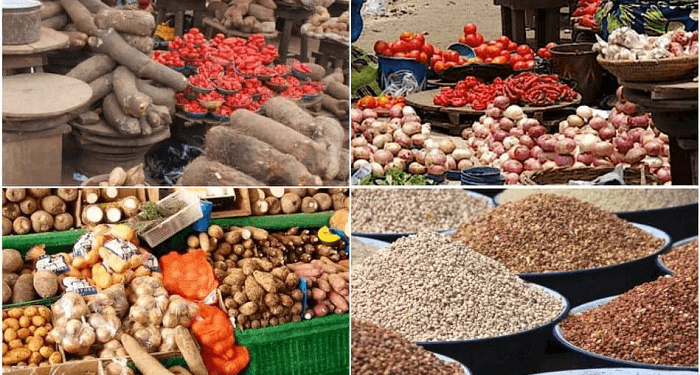About 25.3 million Nigerians across 26 States of the federation and the Federal Capital Territory (FCT) are projected to face food and nutrition insecurity between June and August 2023.
Among the States with the highest rate include; Borno with 1.4 million people, Yobe with 1.3 million people, and Adamawa with one million people.
In the projected period, food consumption is expected to slightly worsen due to possible reduction in household and market stocks and its attendant rise in food prices.
According to the 2022 October Preliminary Food Security and Nutrition Analysis (Cadre Harmonise CH) results released by the Federal Ministry of Agriculture and Rural Development on Friday, about 17 million people including IDPs and returnees in 26 States and FCT were expected to be in Phase 3 of the crisis or even worse through October-December, 2022.
In addition, 35,000 people who are currently in food crisis will reach worse situation out of 83,918 refugees in Benue, Taraba and Cross River States.
The analysis, which was conducted with support from the Food and Agriculture Organisation of the United Nations (FAO) and other development partners further showed that conflict and insecurity, floods, high food prices, high prices of agricultural inputs and depreciation in the value of Naira are the key drivers of the food and nutrition crisis.
Result from the analysis also showed that current mortality rate is in minimal phase across the accessible areas of North-east as well as in the north-west states, while nutrition evaluation in the analysis have reached crisis phase for children under 5 years in places like Borno and Yobe, while those of Adamawa in stress phase.
The results equally showed that in the projected period, states of Adamawa, Borno, Yobe, Katsina, Sokoto, Kaduna and Zamfara, which are experiencing banditry, would likely resort to more severe livelihood coping strategies which might lead to a severe depletion of livelihood assets, unless on-going humanitarian action is sustained.
Addressing experts from across the states to discuss the findings from analysis, the permanent secretary, Ministry of Agriculture and Rural Development, Dr Ernest Umakhihe, assured all partners of governments’ commitment to upholding the outcome and recommendations arising from it with a view to enhancing the food and nutrition security situation in the concerned states through objective intervention programme.
Speaking to stakeholders at the event, FAO country representative to Nigeria and ECOWAS, Fred Kofero, said the analysis produced the most preferred and widely acceptable data/information based on the consensus-based approaches through which it is generated.
Kofero urged government at all levels to consider factoring in the results in all development plans alongside their respective budgets.





